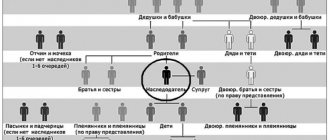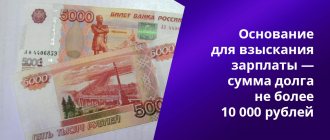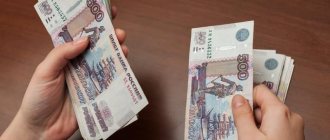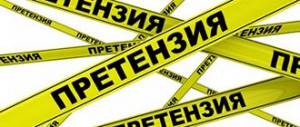The legislation of the Russian Federation provides for various methods of collecting funds from persons with financial debts in various areas. One of the means of debt recovery is the involvement of bailiffs, who are authorized to seize accounts and write off funds from them. To ensure your own financial stability and legal protection of personal funds, you need to know whether the bailiff has the right to withdraw money from the account without notice, and what to do if the bailiffs illegally wrote off money from the account.
What to do if bailiffs have withdrawn money from your card
The rights and responsibilities of bailiffs under the legislation of the Russian Federation have been significantly expanded. If there are legal grounds, they can not only look for all sources of income to collect debts, but directly withdraw funds from the cards.
In order to simplify the enforcement procedure, all stages of debt collection can currently take place electronically: from submitting documents to the court to writing off money. The citizen must be notified of such legal proceedings. However, in practice, some conflicts arise: money is written off in violation of the notification procedure, sometimes repeatedly or without any legal grounds at all. To protect yourself, you should carefully read all the details of this legal practice and what you can do to protect your interests.
What to do if fraudsters have withdrawn money from your card!
According to Article 9 of Federal Law No. 161 “On the National Payment System”, banks are obliged to reimburse their clients for funds stolen from cards in full. However, this rule only applies if the victim applied on time and it was proven that the funds were written off fraudulently. To get your money back, you should take the following steps:
- Immediately after you learn about the theft of money from a bank card, you should immediately call the contact center of the issuing bank and block the card. It is ideal if you have an SMS notification enabled for all transactions performed, so you can promptly find out about the theft of funds and block the card. It is very likely that you only received information about the first debit, and you will be able to prevent the theft of the rest of the money.
- Contact the bank and write a statement about the missing funds and demand compensation for losses. Be sure to study the card issuance agreement, which specifies information about the bank’s actions in the event of theft of money from the card.
- Attach available evidence that the money was debited fraudulently. Unfortunately, the presumption of innocence does not apply here, and the bank will first of all assume that you withdrew the money yourself or your close relatives did. For example, such evidence could be a document from law enforcement agencies stating that a bank card was stolen, and therefore you have nothing to do with the withdrawal of funds.
- Write a statement to the police about the fact of fraud. In most cases, the bank's security service asks not to do this, as this may damage the reputation of the financial institution. However, it is worth considering that the bank does not really want to return the money, therefore, if law enforcement agencies can find the attacker or prove the fact of fraud, this will be conclusive evidence for the bank to return your money.
- Wait for the result of an internal official investigation into the theft of funds from your bank card. If the money was stolen on the territory of the Russian Federation, then the bank must report the results no later than 30 days after filing the application, otherwise - within 60 days.
- If there is evidence that the money was stolen fraudulently, for example, through the use of screening devices at an ATM, the money will be returned. However, if the bank proves that the funds were stolen due to the actions of the victim himself, for example, transferring card data to other persons, then the bank has every right to refuse to return them.
- Going to court as a last resort if the bank refuses to return the money and there is evidence that the funds were stolen by fraudsters.
Unfortunately, banks are not very interested in returning stolen money to customers, especially if they cannot provide evidence of fraud. Therefore, the chances of getting the money back are not very high, but there is still a chance. The best way not to lose your money is to contact the bank as soon as possible as soon as you receive an SMS about the debiting of funds from your card. Money is not immediately withdrawn from the account; there is a certain authorization period. Therefore, if the client manages to submit an application on time, the transaction will be canceled and the money will be returned.
How to return illegally withdrawn money
To figure out whether it is possible to return written-off funds in a situation where this happened illegally, you should rely on the fact that all the powers of the bailiff are in strict accordance with the current legislation of the Russian Federation. Therefore, any step that contradicts at least one norm of law is subject to appeal in court.
The most common violations when bailiffs perform their duties are:
- receiving information from banking institutions only about the availability of certain funds without information about their intended purpose, which may lead to the withdrawal of funds that cannot be used to collect debts according to the law;
- debits from the card are carried out in the following order: first to the FSSP account, and only then to the accounts of the creditor; during the procedure, delays in transfers may occur, which leads to repeated withdrawals of funds;
- For various reasons, notification of the commencement of legal proceedings was not received, which is why the write-off of money comes as a complete surprise.
To return funds that were withdrawn without legal grounds, you must send a corresponding application to the head of the FSSP department. It indicates the applicant’s full name, his passport and contact details, the number of the enforcement proceedings, and the facts confirming the illegal withdrawal. All supporting documents are attached to the application, such as a certificate of the purpose of the funds received, an extract of the fine already paid, etc.
The document is submitted in 2 copies. The official accepting the application is required to sign it. If there are sufficient facts of illegal withdrawal of funds, the bailiff’s response order indicating the return of funds, canceling the previously issued collection order must be issued within 7 working days.
Note!
If, in the presence and confirmation of facts of violation of the law, the bailiffs refuse to return the collected money voluntarily, it will be necessary to contact the court at the place of registration of the bailiff service department with a corresponding statement of claim. In addition to the withdrawn amount, you can also indicate other claims, such as damages caused: compensation for moral damage or legal expenses.
How to dispute a transaction
If you find a transaction in your statement that raises your doubts or differs from what you expected to see, also contact the bank. If this happened abroad, and you were in Russia at that moment, you can provide a foreign passport as confirmation. Or, if you have a check for a transaction for 100 euros, but 200 was written off from you, take the check with you and also write a statement to dispute the amount. The bank will definitely look into this and return the money if it is indeed written off illegally.
Where can funds be debited from?
The law allows bailiffs, in carrying out their official duties, to directly cooperate with tax authorities and credit institutions in order to obtain reliable information about the availability of financial resources of citizens in whose case judicial proceedings are being conducted. They can obtain information about the availability of funds in the bank, the balance of funds in the account, etc. Financial organizations are required to provide this information to bailiffs; otherwise, significant penalties may be imposed on them.
In accordance with the Federal Law of the Russian Federation “On Enforcement Proceedings,” financial funds can be recovered from the following accounts:
- salary cards;
- debit cards;
- credit cards;
- electronic wallets;
- stock accounts.
Note!
Collection of money from a salary card cannot exceed fifty percent of the amount of monthly charges. If a one-time withdrawal does not fully cover the amount of debt obligations, then payments can be withdrawn monthly until the full amount of debt obligations is repaid.
Also, when proving in court his difficult financial situation, every citizen can count on a reduction in the percentage of monthly collections, sometimes the reduction can be more than 30 percent.
On the other hand, in this bill there are fixed incomes that are not subject to recovery, here are some of them:
- alimony payments;
- funds that compensate for damage caused to health;
- social benefits;
- survivor benefits;
- one-time financial assistance;
- payment for the burial of the deceased;
- child benefits, etc.
What should I do if money has been debited from my card?
As soon as you discover that money has disappeared from your card, find out the reason for the debit and do not agree with it, immediately:
- Block your card immediately by calling the hotline to prevent illegal charges from happening again.
- Immediately contact the bank branch where you were issued the card and write a statement about the disputed transaction . Each bank usually has its own form for such a statement, but if they don’t give you one, describe the situation in detail in free form, indicating all amounts, dates of debit, transaction numbers (which you see in the card account statement). At the end of the application, ask the bank to return the illegally debited amount to your account.
An application for a disputed transaction is always considered for quite a long time: usually at least a month, and if the transaction occurred in another country, it can be 2-3 months. During this period, the bank conducts an internal investigation and contacts the bank through whose ATM/terminal the money was debited from your card. If obvious signs of fraud and a large amount of write-off are detected, a criminal case may even be initiated. As you know, now almost all ATMs and cash registers in retail stores are equipped with video surveillance cameras, so it will be clear who exactly made the transaction. It’s worse if money disappeared from the card because someone paid for it online. But even in this case, there is always a chance of finding the perpetrators, and the party that made the mistake will have to compensate you for the damage and return the amount written off.
In general, your job is to write a statement about the disputed transaction and periodically ask how the investigation is progressing.
Why was the money written off?
In order to obtain information about why funds were collected from the current account, you will need to contact the bank for a statement of debiting funds, which indicates data on the enforcement proceedings on the basis of which the collection occurred.
After this, it will be possible, by indicating your data, on the official website of the FSSP, to obtain information about the number of the enforcement proceedings, the address of the department where the case is located, and the name of the bailiff who was in charge of it.
To prevent money being written off as an unpleasant surprise, you can protect yourself as follows:
- check, based on personal data, the presence of open proceedings on the official website of the FSSP;
- regularly check e-mail and municipal mail;
- keep records of cash receipts on the card;
- save financial documents confirming payments and transactions;
- receive and make payments in cash.
How do double debits occur?
Most often this is a technical error.
How does it happen? Usually you “roll” the card in a store, the amount on it is blocked and then written off: you now have 3,000 less. But sometimes, due to a technical failure or a cashier’s error, a double write-off occurs: 3,000 and again 3,000 rubles. This is a significant problem not only for you, but also for the seller and the bank, so they themselves try to resolve the issue as quickly as possible. Plus, the payment system monitors everything – it receives confirmation of completed transactions. The store will confirm only one of them - and with a 99% probability the money will be returned back to your account in a few days. But, to protect yourself, you can contact the bank and write an application to dispute the amount. However, it also happens differently: you spent 100 rubles on coffee in the morning and 100 in the afternoon, then looked at the statements, found two absolutely identical transactions and think that one of them is erroneous. You can check this in the bank’s mobile application: Alfa-Mobile will tell you where and when you made the purchase. Use it more often and keep costs under control.
The procedure for writing off funds from the card
There is a certain procedure for writing off funds from cards. To do this, bailiffs must initiate enforcement proceedings on the basis of the following judicial acts:
- court order;
- civil court decisions;
- resolution on an administrative offense;
- writ of execution in a criminal or civil case.
After the case is considered, copies of these court documents must be sent to all parties for review. The results of legal proceedings may be challenged in court. To do this, you will need to file an appeal with the same judicial body.
After the bailiff issues a decision on enforcement proceedings, a copy of the document must be sent by mail to the citizen in respect of whom it was carried out. From the moment the citizen receives the notification, and if it was not received from the date indicated in the expiration stamp of the returned notification, there is a five-day period to voluntarily repay the debt.
If during this time the decision was ignored, then, according to the law, bailiffs have a reasonable right to initiate a search for the bank accounts of persons in whose case proceedings were carried out. In addition, the bailiff can collect not only the amount of the fine, but also the enforcement fee.
Current legislation and debiting funds from a card without the owner’s knowledge
The procedure for banks to provide payment services is regulated by Federal Law No. 161 “On the National Payment System”. The legislative document came into force back in 2011, but the most important amendments, which increase the operator’s liability and are aimed at protecting a client whose money was written off from his card without his knowledge, came into force only on January 1, 2014.
According to current legislation, the bank is obliged to return to the cardholder the money stolen from the card, unless a violation of the security rules for using payment instruments is proven. To do this, a statement from the client is sufficient, which must be written no later than the next day after receiving the bank notice of withdrawal of money. If the client did not receive notification, then the funds are refunded without fail.
But, despite the fact that this law is close to the directives contained in the current European legislation, which has been successfully operating since 2007, it contains many wordings that can be interpreted in two ways, which means cardholders should not count on a quick refund.
First of all, it should be understood that the law does not specify the period within which funds must be returned to the client.
The Bank of Russia recommends that banking institutions indicate it in contracts with cardholders. Therefore, before signing an agreement with the bank, carefully study it. It must necessarily contain a clause that describes the procedure for challenging incorrect transactions, as well as the algorithm for the actions of the bank and the client in such cases.









